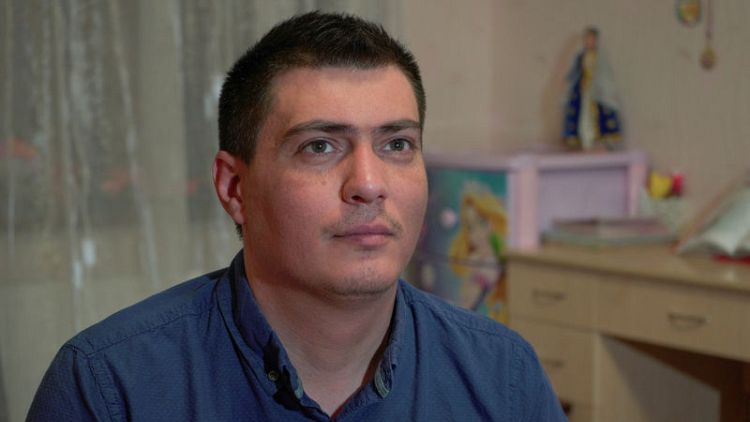By Margaryta Chornokondratenko
KIEV/SIMFEROPOL (Reuters) - Five years after Russia seized Crimea from Ukraine, prominent dissident Ilmi Umerov finds himself in Kiev, separated from his wife and family in Crimea whom he fears rejoining because of what he thinks is the threat of prosecution.
The pro-Kiev Crimean Tatar activist was jailed for two years by Russia in 2017 for separatism but has been released as part of a deal brokered by Turkey.
The 62-year-old now lives in Kiev with his youngest daughter, while his wife, two other children and relatives live in Crimea.
He fears local authorities could open a new case against him if he returns.
The Tatars, a mainly Muslim Turkic community that makes up about 15 percent of Crimea's population, suffered mass deportation under former Soviet dictator Josef Stalin.
They have largely opposed Russian rule in Crimea and say Moscow's 2014 annexation of the peninsula was illegal, a view supported by the West.
"Frankly speaking, it is not my separation from the people that is hard, but my separation from Crimea. It took so many efforts to return to Crimea after the deportations in 1944," said Umerov, referring to the Crimean Tatars' return many years later.
He urges Crimean Tatars not to leave the peninsula unless there is a real threat to their life and freedom.
Umerov was deputy head of the Crimean Tatars' semi-official Mejlis legislature before it was suspended by Moscow in 2017.
His wife visits him regularly in Kiev and his son Suleyman, who lives in the Crimean city of Simferopol, makes the trip twice a year.
"I have a father and he is not that far from me. But while I am here and he is there, it feels like something was taken out of me and was not put back to its place," Suleyman told Reuters in Simferopol.
(Reporting by Margaryta Chornokondratenko; writing by Tom Balmforth; editing by Jason Neely)
